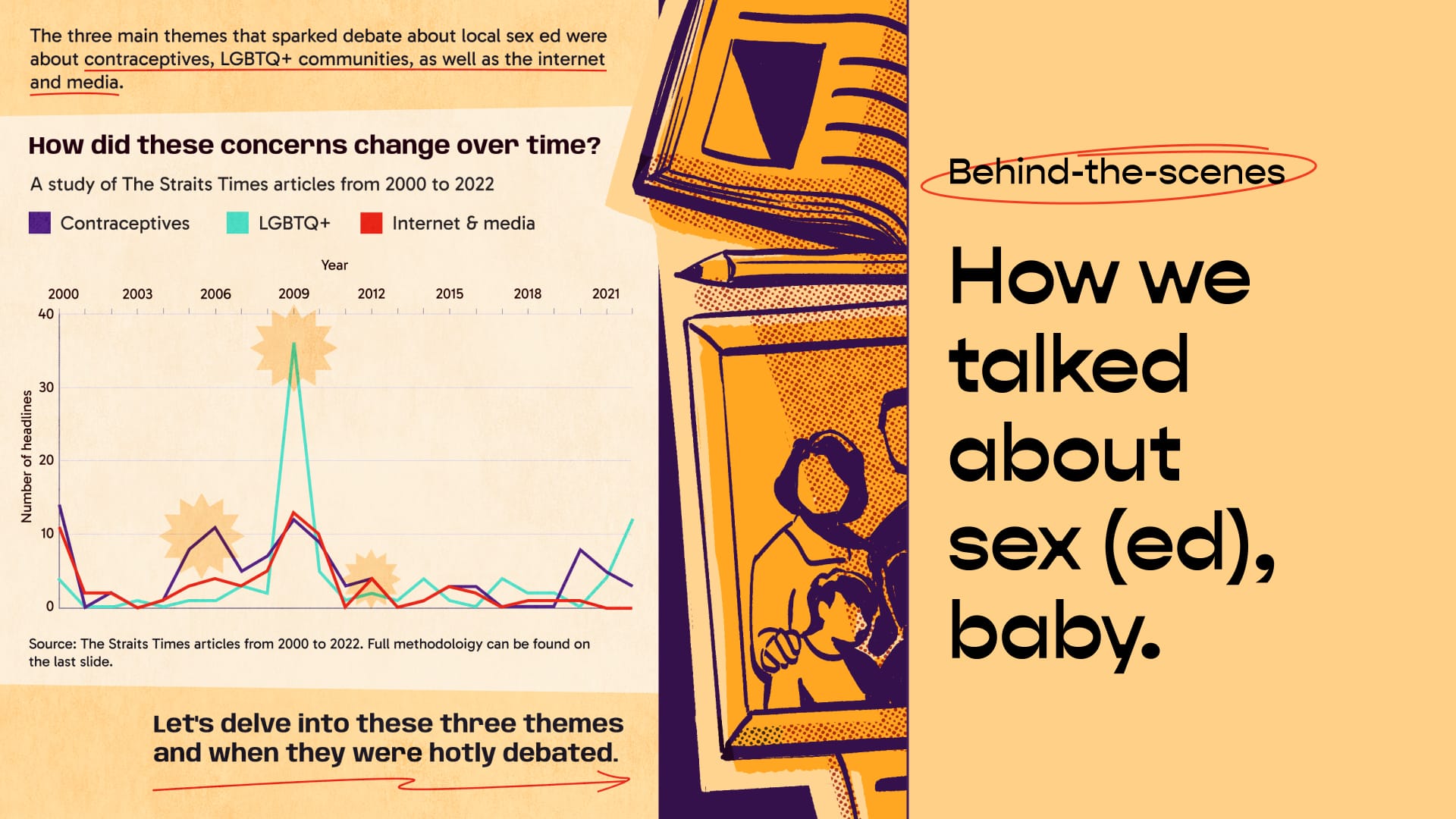
How we talked about sex (ed), baby
We share our process of creating a microstory about the evolution of sex education policy in Singapore over the past two decades, shedding light on its pivotal role in shaping the nation's attitude towards sexuality—and vice versa. We delve into how we collated and analysed over 200 newspaper articles, the thought process behind our data, design, and editorial choices, and the challenges we faced.
The Origin Story
The idea for this story started with The Gender Beat, a group comprising media workers, journalists, and editors from publications around the world. We came together in September 2023, brainstorming the possible issues that we could explore through a global, intersectional feminist lens. We finally landed on “The Talk”, a series of pieces on the state of sexuality education around the world, inspired by the different ways of understanding sex and sexuality in our respective regions and cultures. For example, some of us did not even know what the word for “sex” or “period” was in our native tongues!
Language and discourse served as the entrypoint for my exploration into how conversations around sex ed in Singapore have been shaped. I was specifically interested in understanding how sex ed has become a focal point in local discourse in the country. For example, understanding how the repeal of Section 377A, a colonial-era law criminalising sexual activity between men, would impact the future of the country’s sex ed curriculum, which was still centred around the heterosexual nuclear family unit. This subject matter is also personal—I was heavily involved in advocating against campus sexual violence during my university days. I was driven by a desire to understand how to propel the dialogue on sexuality education forward.
But before I did that, I wanted to understand it from a historical perspective: how has sexuality education in Singapore changed over the years? When discussing potential data sources, our Editorial Lead Nabilah suggested looking at headlines from Singapore’s main paper, The Straits Times, and seeing how they might reflect the concerns and ideas people had around sex through the decades.


